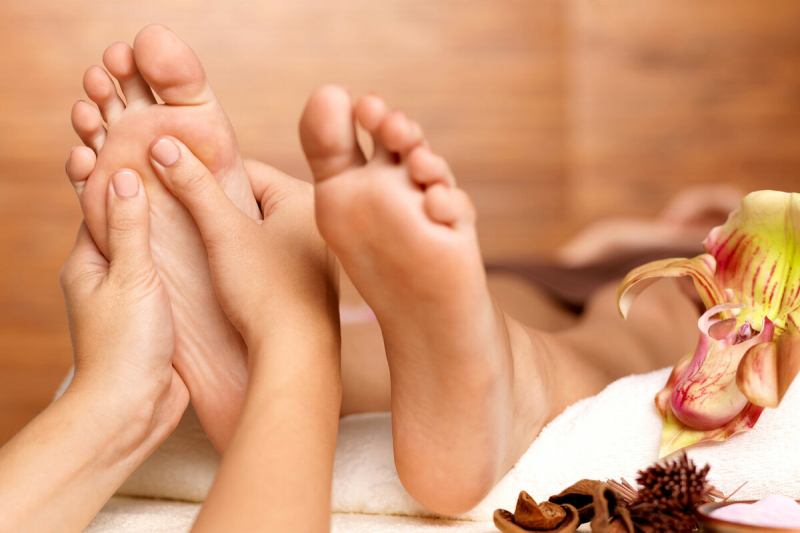
Tired legs syndrome: why it occurs and how to deal with it
1
If during the day you wore uncomfortable shoes or walked a lot, it is not surprising that in the evening your feet swell, hum or ache. But why don't these uncomfortable feelings leave you around the clock?
We all know the feeling of relief when you take off your high heels in the evening and go barefoot to the bathroom. But if unpleasant sensations remain even after several hours of rest, you should think seriously: are you prone to tired legs syndrome, which often indicates the presence of chronic venous insufficiency (CVI)?
“Discomfort in the legs can manifest itself in different ways: small swellings in the ankles, pain in the calf muscles, cramps. Such symptoms bother patients so often that scientists have started talking about an epidemic of this syndrome,” explains vascular surgeon and phlebologist Yevhen Letunovsky.
Around the world, 25-33% of people suffer from this problem, and more than half of them are women. The appearance of CVI can be triggered by a change in the level of hormones (due to the menstrual cycle or taking contraceptives). Pregnancy and childbirth also do not have the best effect on well-being, lead to stagnation of blood in the veins. And the habit of wearing uncomfortable shoes or high-heeled shoes aggravates the situation even more.
“Heaviness in the legs is not the only symptom of venous pathology,” adds Yevhen Letunovskyi. – Pay attention to swelling, discomfort and burning pain, and especially night cramps.”
According to surgeon Oleksandr Alexandrov, 90% of CVI is a hereditary problem. At the same time, in the vast majority of cases, varicose veins are transmitted through the female line.
There are other reasons for the appearance of CHV that are not related to the problems of close relatives. Do you not deny yourself buns, cakes and other sweets? Are you used to having dinner late? In this case, you yourself provoke the occurrence of this disease – with such a diet, weight will certainly increase, and with it, the load on the legs.

Another reason for the occurrence of this ailment may be a sedentary lifestyle. After all, when the body does not receive the necessary amount of physical activity, the lower part of the spine becomes ossified, and the abdominal muscles gradually weaken. This, in turn, leads to impaired blood circulation, contributes to the inflammation of the vein walls and the appearance of varicose veins. Those who do not get up from the table all day strain the same muscle groups. Of course, they get tired, and painful sensations arise. By the way, the symptoms of CVI that have appeared are a convincing reason to stop smoking. In avid smokers, blood circulation deteriorates and the lumen of blood vessels narrows, which leads to vascular diseases.
Recommendations:
• wipe your feet with water with the addition of a small amount of natural apple cider vinegar, make cold compresses from a decoction of chamomile and calendula. This will help relieve pain and fatigue
• swim more – this type of exercise does not injure the veins and improves blood circulation
• well relieves swelling and pain massage using a mixture of sandalwood and cypress oils, as well as sweet almond and pepper oils mint
• do not be lazy to do gymnastics. It is very simple. You need to lie down, rest your feet against the wall and relax them. Then try to tear your hips off the floor, holding your lower back, and then “stand up” on your shoulders. Then swing back hard, while trying to keep your balance with your legs. Slowly, counting to ten, return to the starting position. Get some rest. Repeat the exercise 2 more times.
Soul and body
A few decades ago, doctors discovered that chronic leg pain was largely caused by psychological causes. is he ready to part with all the causes of his illness – only then will you be able to help him,” psychologist Olga Smirnova quotes Socrates.
Long-term depression, chronic irritation, can lead to constant aching pain and a feeling of heaviness in the legs. constant worry or fear, inability to relax.
“We often push negative experiences out of our minds, instead of acknowledging the fact of their existence and working on them,” explains Olga Smirnova.
– Then unresolved problems “settle” on the body. Any emotion can be accompanied by changes at different levels: social (for example, a decrease in work productivity), psychological (deterioration of memory, attention), physiological (feeling bad). When we deprive ourselves of joy for a long time and reduce motor and expressive activity, the quality of our life deteriorates.”
Psychological state and physical well-being interact: pain leads to bad mood and depression, which, in turn, prevent the body from functioning properly function.
Prevent the danger
Fortunately, heaviness in the legs can be avoided.
“Do active sports,” advises Yevhen Letunovskyi. – Wear loose shoes with flexible soles and no heels. Even if you mainly have a sedentary job, try to change your body position more often. Forget about elevators and use the stairs.”
Self-massage also helps to reduce discomfort. Every night before going to bed, massage the ankles, lower legs, and thighs. Perform movements in the direction from the bottom up. Try not to abuse hot baths, visiting the sauna and staying in the sun. Any effect of heat leads to the expansion of veins and aggravates the situation.
Pay attention to the diet. There is a myth: diet helps to cope with varicose veins. However, this is not the case – fats and cholesterol form plaques only in arterial vessels and have practically no effect on the condition of veins. Therefore, train yourself to eat often, but in small portions. This will improve metabolism and normalize blood circulation.
Also, try to avoid the “leg to leg” position; every 30-40 minutes get up and walk at home. “It is also useful to wear compression knitwear (tights or stockings), which reduces the likelihood that the disease will progress,” adds Oleksandr Oleksandrov.
At night, try to fall asleep with your legs slightly elevated – 5-10 cm higher than your body . To do this, put a roller or a folded blanket under your feet – in the morning you won't even remember the pain that was so annoying last night!
However, remember: any competent treatment of chronic venous insufficiency must begin with a diagnosis by a phlebologist. Yevhen Letunovsky advises to consult a doctor who can conduct a special ultrasound examination – duplex color scanning. Only after that the doctor will be able to recommend effective procedures.









Leave a Reply